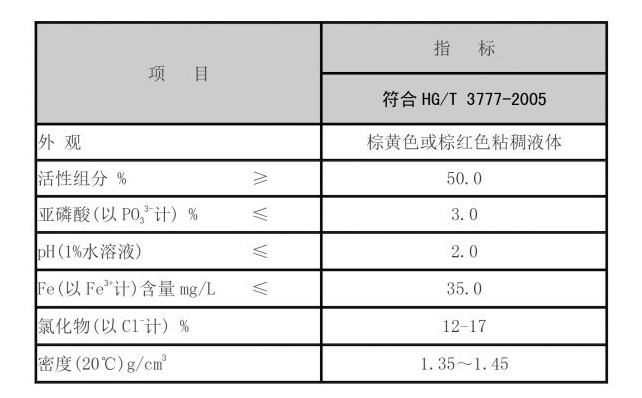cooling tower scale inhibitor
Understanding Cooling Tower Scale Inhibitors Importance and Functionality
Cooling towers are integral components in numerous industries, particularly in power generation, HVAC systems, and various manufacturing processes. These structures help dissipate heat from the systems they serve by transferring waste heat into the atmosphere, thus maintaining optimal operation temperatures. However, one significant challenge encountered in cooling tower operation is the formation of scale—a hard, mineral deposit that accumulates on surfaces within the system. To combat this issue, cooling tower scale inhibitors play a crucial role.
The Problem of Scaling
Scaling in cooling towers primarily arises from the evaporation of water and the subsequent concentration of minerals such as calcium, magnesium, and silica. These minerals can precipitate out of solution when their concentration exceeds a certain level, leading to the formation of scale on heat transfer surfaces and other critical components. The buildup of scale can severely impact the efficiency of heat exchange, decrease water flow, and lead to increased energy consumption and maintenance costs. Moreover, in extreme cases, scaling can cause equipment failure, resulting in costly downtime.
What Are Scale Inhibitors?
Scale inhibitors are chemical substances designed to prevent or mitigate the formation of scale in industrial systems, including cooling towers. These inhibitors work primarily through two mechanisms threshold effect and crystal modification.
1. Threshold Effect This mechanism involves keeping minerals dissolved in water at concentrations above their normal solubility limits. Scale inhibitors interfere with the crystal growth process, effectively allowing the minerals to remain in the liquid phase and thus preventing deposition on surfaces.
2. Crystal Modification Certain scale inhibitors influence the crystalline structure of minerals as they precipitate out of solution. By modifying the shape and size of the crystal, these inhibitors can reduce the adhesion of scale to surfaces, making it easier to remove or preventing its formation altogether.
Types of Cooling Tower Scale Inhibitors
Cooling tower scale inhibitors can be broadly categorized into two groups organic and inorganic inhibitors
.cooling tower scale inhibitor

- Organic Inhibitors These are typically polymers, such as polyacrylic acid, polymaleic acid, and amino phosphonates. They are effective at low concentrations and can provide long-term protection against scaling. Their complex molecular structures allow them to interact with scale-forming ions and prevent crystal growth.
- Inorganic Inhibitors Common inorganic inhibitors include phosphates, silicates, and borates. These substances tend to be effective in high concentrations and can work in conjunction with other chemical treatments, such as biocides, to address multiple issues within cooling towers.
Benefits of Using Scale Inhibitors
1. Improved Efficiency By preventing scale formation, these inhibitors help maintain a high level of heat transfer efficiency, allowing cooling systems to operate effectively without the complications caused by scaling.
2. Cost Savings The use of scale inhibitors can lead to significant savings in terms of maintenance costs, energy consumption, and equipment longevity. Reduced scaling can lower the frequency and intensity of cleaning procedures, which can be labor-intensive and costly.
3. Environmental Protection Efficient cooling tower operation minimizes water consumption and reduces the frequency of blowdown, a process that discards water to remove build-up contaminants. In turn, this helps conserve water resources and minimize the environmental impact.
4. Operational Stability Scale inhibitors contribute to the overall reliability and stability of cooling operations, reducing the risk of system failures and associated downtime.
Conclusion
In conclusion, cooling tower scale inhibitors are essential for ensuring the efficient and dependable operation of cooling systems across various industries. By understanding the types and mechanisms of these inhibitors, facility managers can choose the most effective treatment programs tailored to their specific needs. As industries continue to focus on sustainability and efficiency, the role of scale inhibitors in managing water treatment challenges will only grow in importance, making them an indispensable part of modern cooling tower maintenance strategies.
-
Pbtc Scale InhibitorPBTC: A Scale Protector for Industrial Water TreatmentNewsAug.05,2025
-
Organic Phosphonate: An Efficient Defender in the Field of Scale InhibitionNewsAug.05,2025
-
Hydrolyzed Polymaleic Anhydride: Green Pioneer in Scale Inhibition FieldNewsAug.05,2025
-
PAPEMP Polyamino Polyether Methylene Phosphonic Acid For SaleNewsAug.05,2025
-
Flocculant Water Treatment: A Pioneer in Purification in the Field of Water TreatmentNewsAug.05,2025
-
Benzyl Isothiazolinone: An Efficient and Broad-Spectrum Antibacterial Protective GuardNewsAug.05,2025





